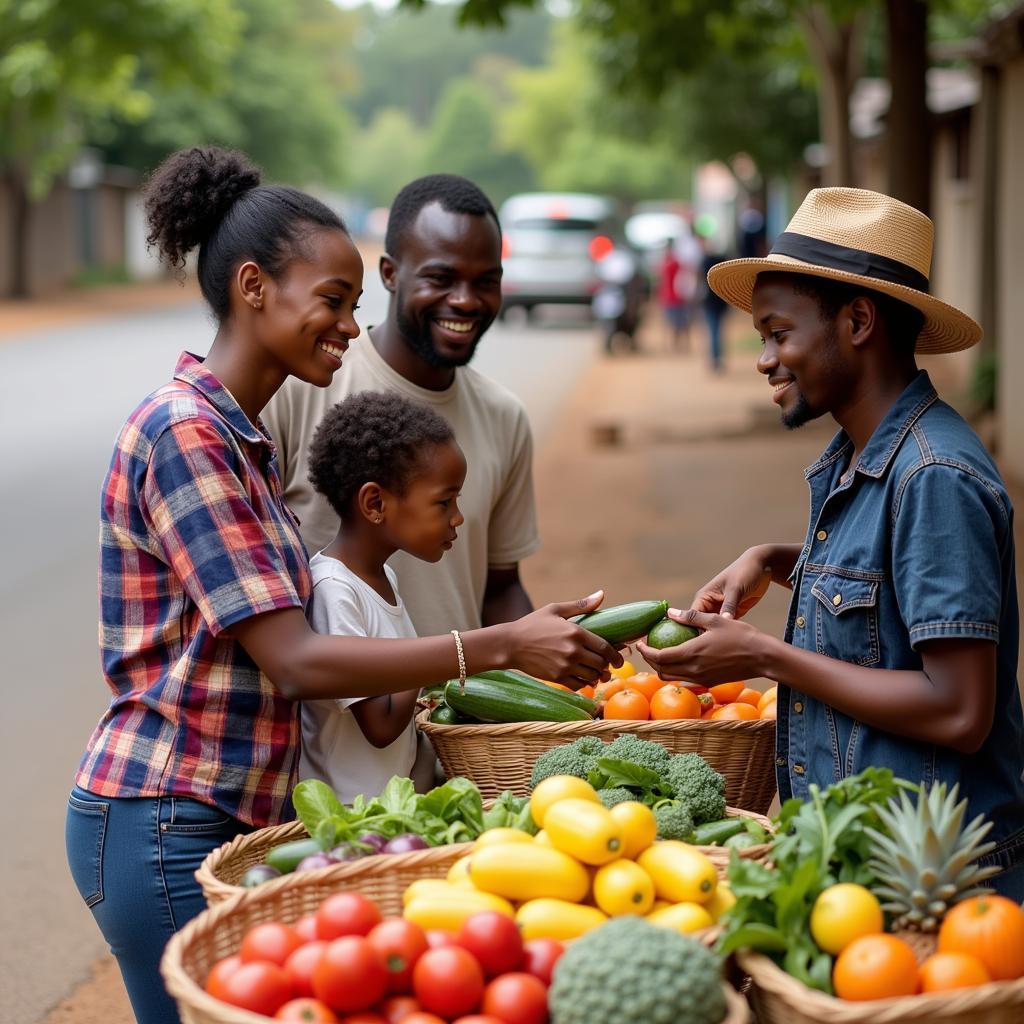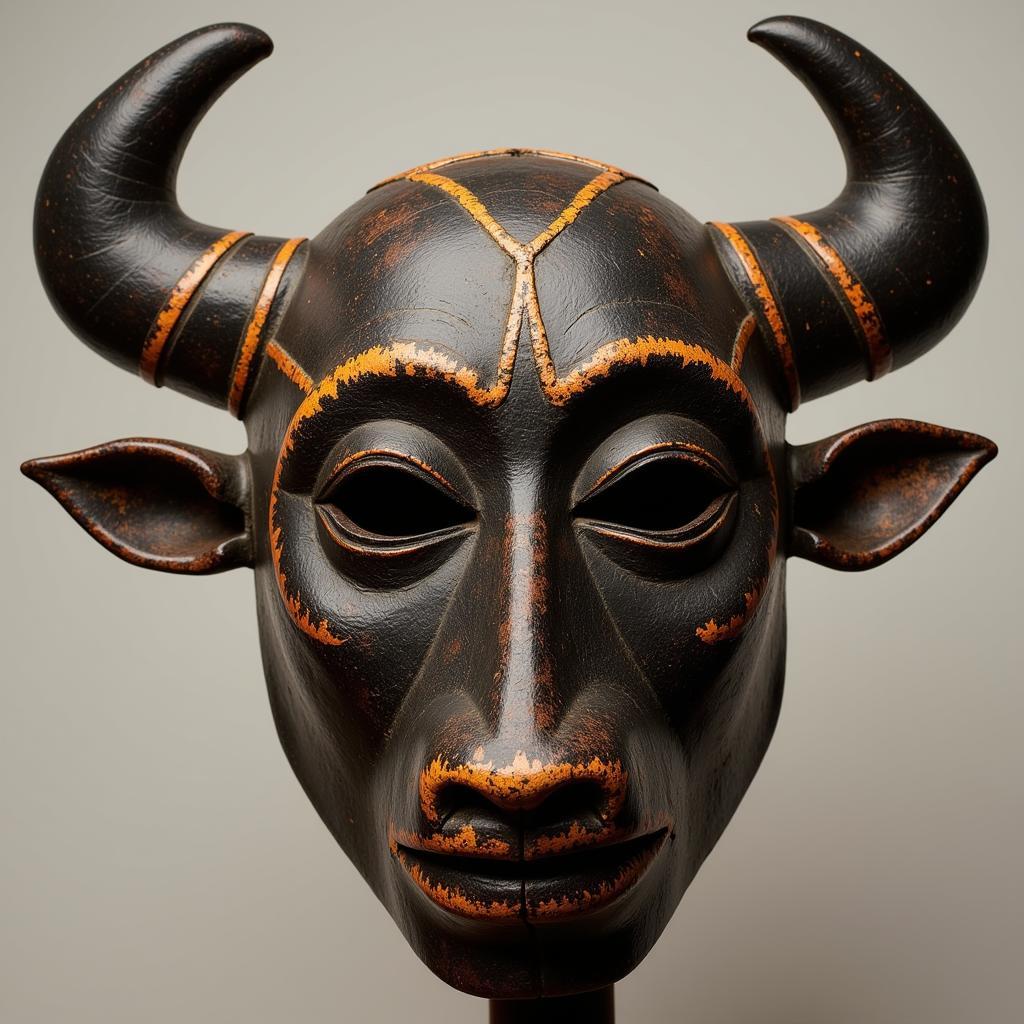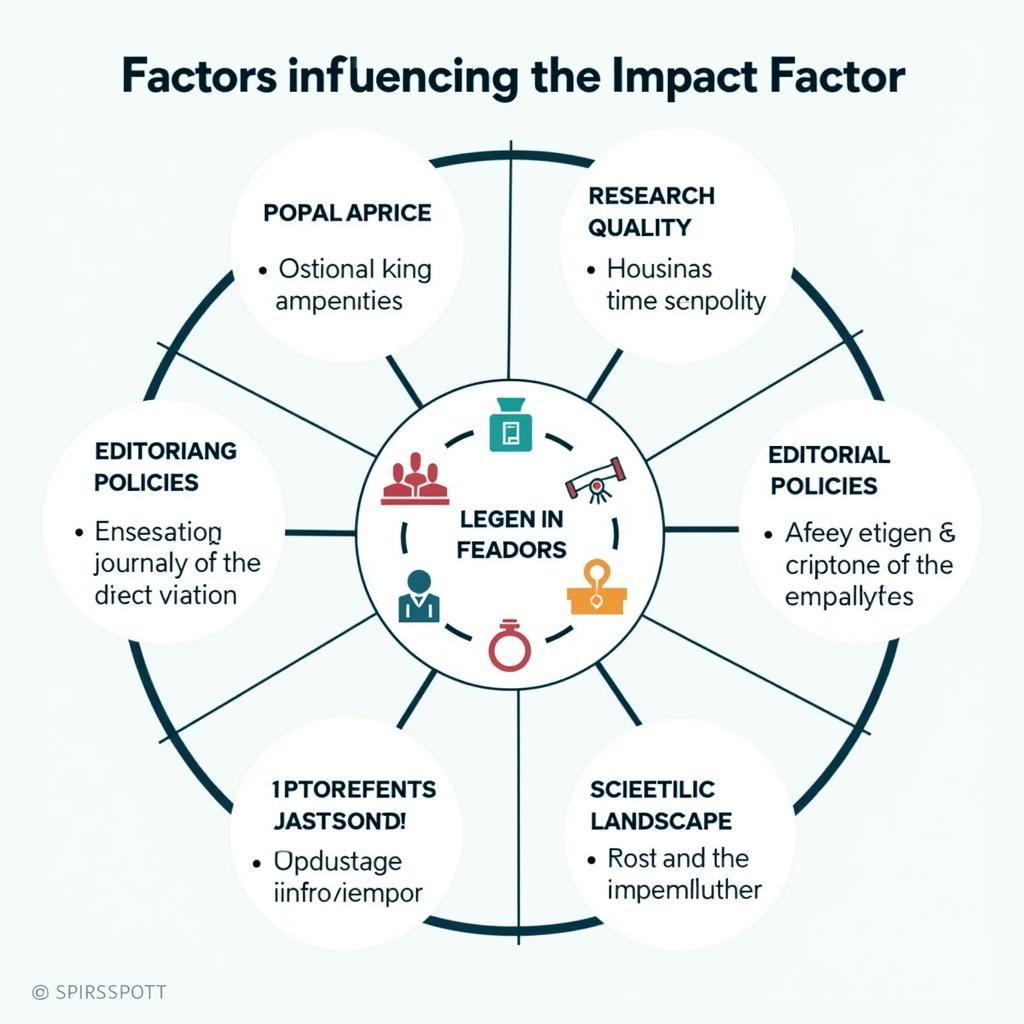Exploring African Family Shopping: A Rich Cultural Tapestry
African Family Shopping is more than just a transaction; it’s a vibrant cultural experience deeply embedded in tradition, community, and shared values. From bustling marketplaces to small family-owned shops, the act of acquiring goods in Africa tells a story of resourcefulness, kinship, and the celebration of everyday life. Let’s delve into the heart of this unique aspect of African culture.
The Marketplace: A Social Hub
Traditional African markets are the epicenter of community life. They’re not simply places to buy and sell goods, but spaces where social connections are forged and strengthened. African family shopping often involves multiple generations, from grandparents to young children, each playing a role in the selection and purchase of items. These vibrant marketplaces offer a glimpse into the heart of African culture, with their colorful displays of textiles, the aromatic scents of spices, and the rhythmic sounds of bargaining. You’ll often see families enjoying street food together, catching up on local news, and sharing stories. Shopping in Africa is an interactive experience, a far cry from the sterile environment of many Western supermarkets.
Bargaining: The Art of Negotiation
Haggling over prices is an integral part of African family shopping. It’s a friendly exchange, a test of wit and charm, and a way to build rapport with vendors. This isn’t just about getting the best deal; it’s a social ritual, a display of respect, and a way to acknowledge the value of the goods and the vendor’s expertise. Children learn this art of negotiation from a young age, observing their elders and gradually participating in the process.
Beyond the Marketplace: Modern Shopping Trends
While traditional markets remain central to African commerce, modern shopping trends are also emerging. Supermarkets and online platforms are gaining popularity, especially in urban areas. This shift reflects the growing influence of globalization and the increasing access to technology. However, even in these modern settings, the emphasis on family and community often remains strong. African families may still shop together, even in supermarkets, discussing choices and making decisions collectively.
Embracing E-commerce: A Growing Trend
The rise of e-commerce is creating new opportunities for African businesses and consumers. Online platforms offer greater access to a wider range of products and services, connecting rural communities to a global marketplace. This is particularly significant for items like african baby clothes south africa or unique african bridesmaid dresses designs, which may not be readily available in local markets.
“The internet has opened up a whole new world for African entrepreneurs,” says Anika Moagi, a business consultant based in Nairobi. “It allows them to reach customers across the continent and beyond, showcasing the diversity and creativity of African products.”
Supporting Local Businesses: A Key Value
Whether shopping in a bustling market or browsing online, African families often prioritize supporting local businesses. This reflects a deep-seated commitment to community development and economic empowerment. Many families prefer to buy goods produced within their own country or region, fostering a sense of collective pride and self-reliance. This is particularly true for clothing and accessories, with many choosing traditional garments or modern designs showcasing local craftsmanship. For example, african clothing store oakland ca offer unique designs.
 Family buying local produce at a roadside stall
Family buying local produce at a roadside stall
Conclusion: African Family Shopping – A Celebration of Culture and Community
African family shopping is more than a mere economic activity; it’s a vibrant expression of cultural values, community ties, and the joy of shared experiences. From the bustling marketplaces to the emerging online platforms, the act of acquiring goods reflects the resilience, creativity, and deep-rooted traditions of African families. As Africa continues to evolve, the spirit of community and the importance of supporting local businesses will undoubtedly remain central to the African family shopping experience.
FAQs
- What is the typical bargaining etiquette in African markets?
- How are modern shopping trends impacting traditional markets in Africa?
- What are some popular items purchased by African families?
- What role do children play in the African family shopping experience?
- How does supporting local businesses contribute to the African economy?
- Are there any specific cultural considerations to keep in mind when shopping in Africa?
- How can I find authentic African products online?
When you need assistance, contact us 24/7 at Phone: +255768904061, Email: [email protected] or visit us at Mbarali DC Mawindi, Kangaga, Tanzania.

